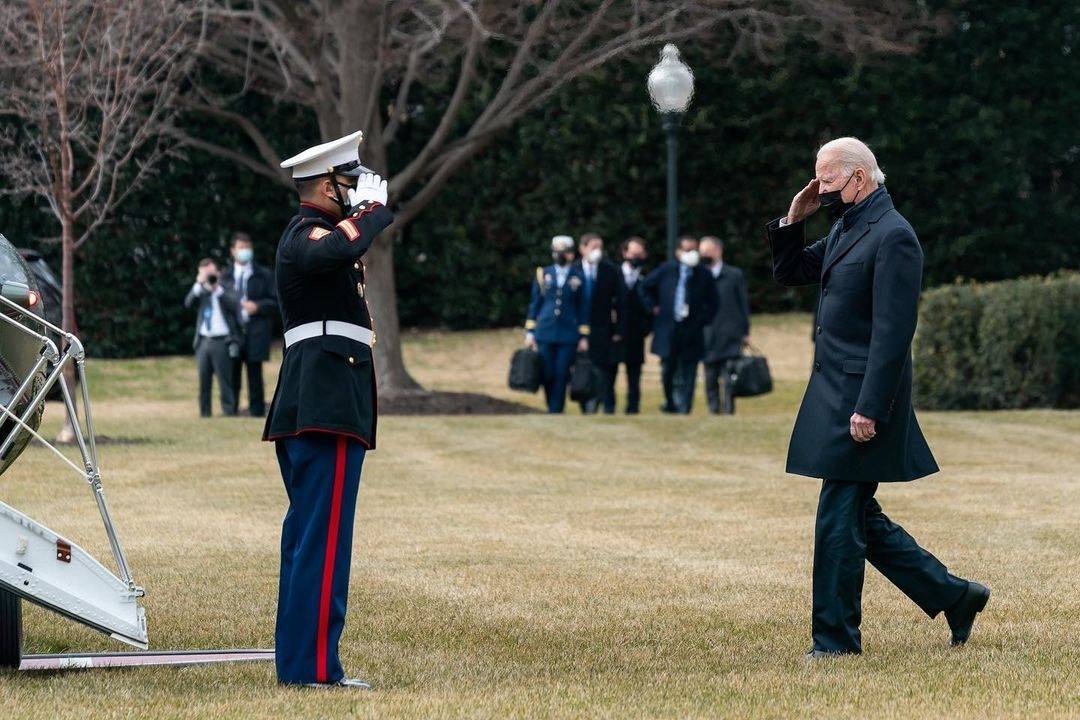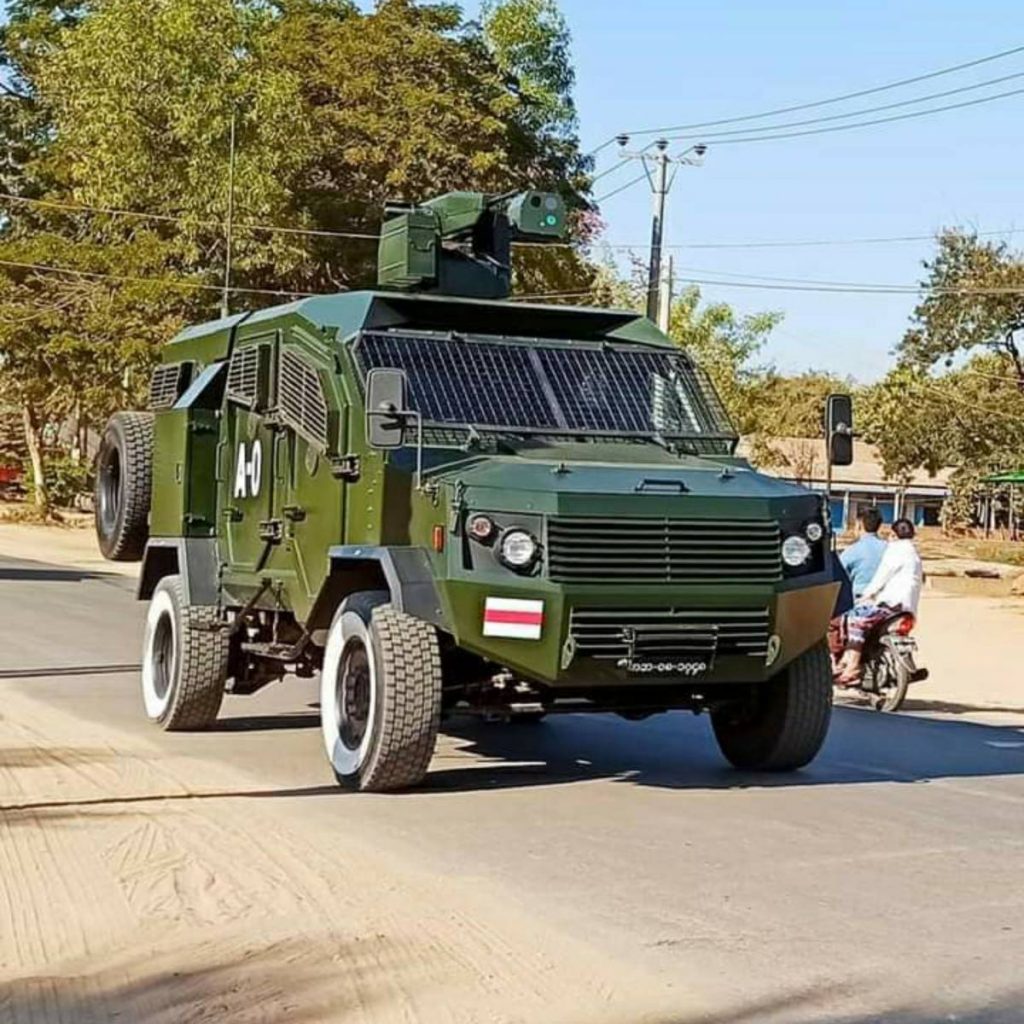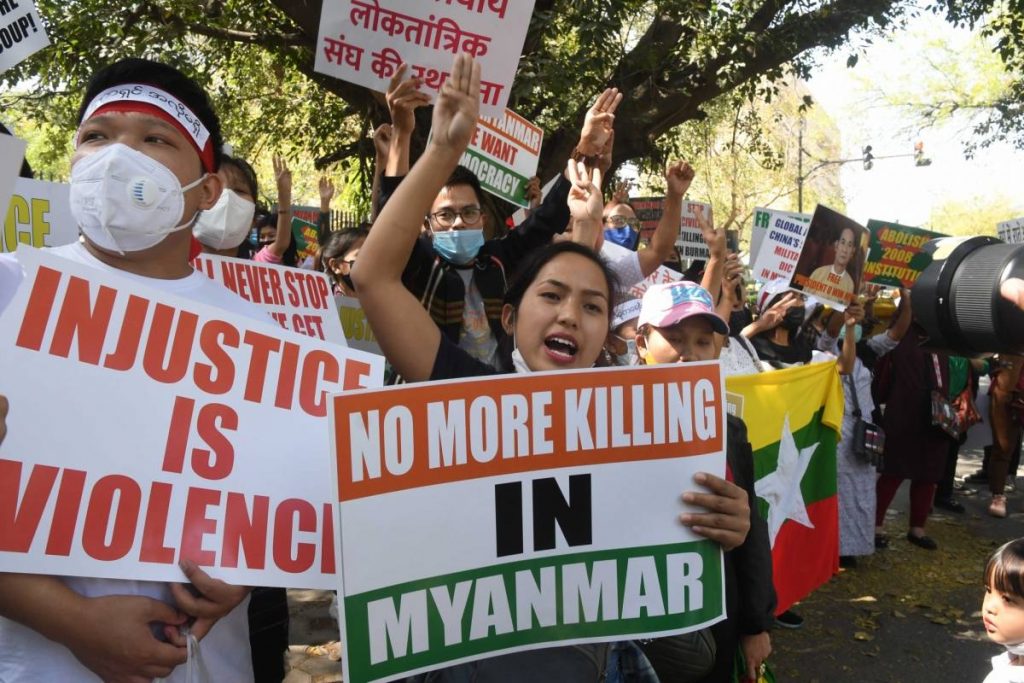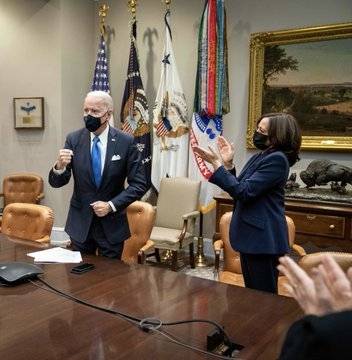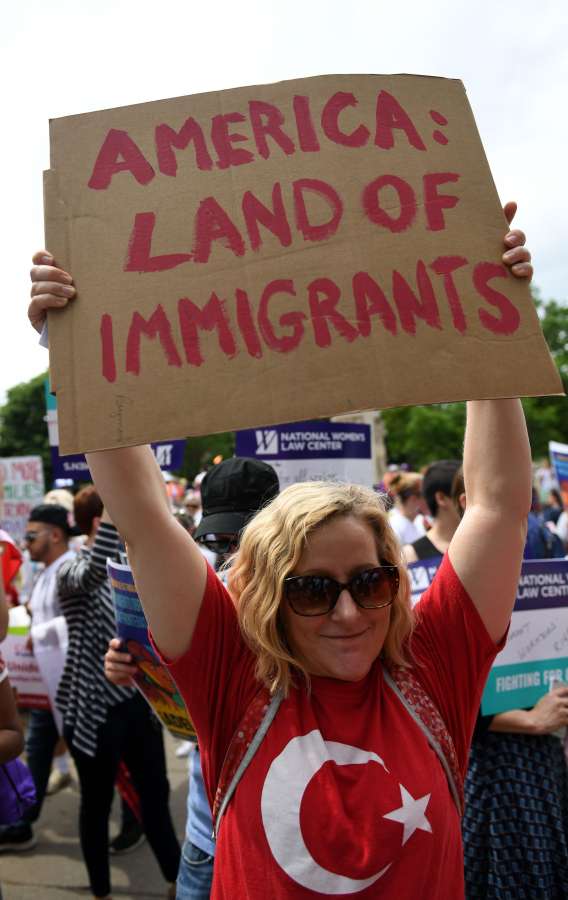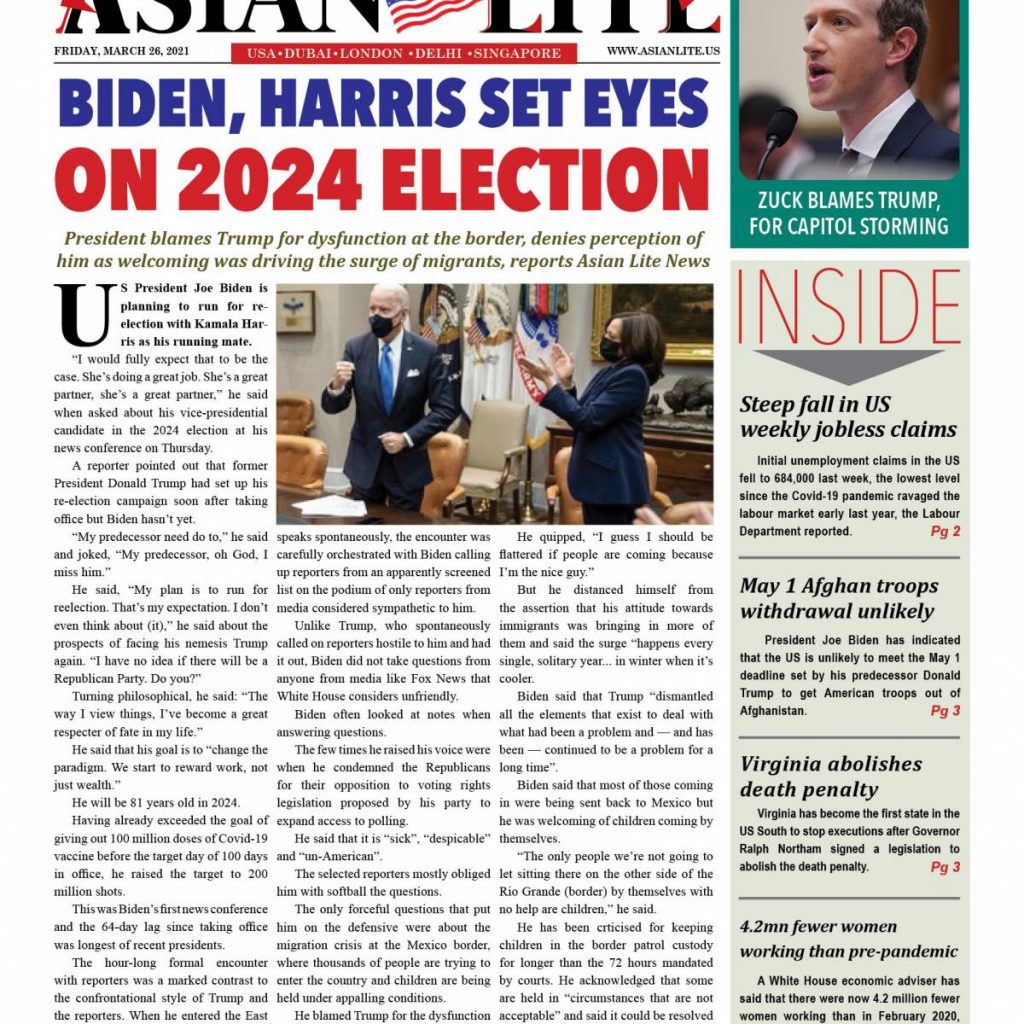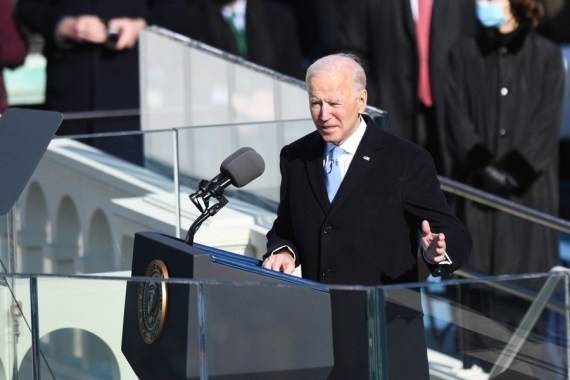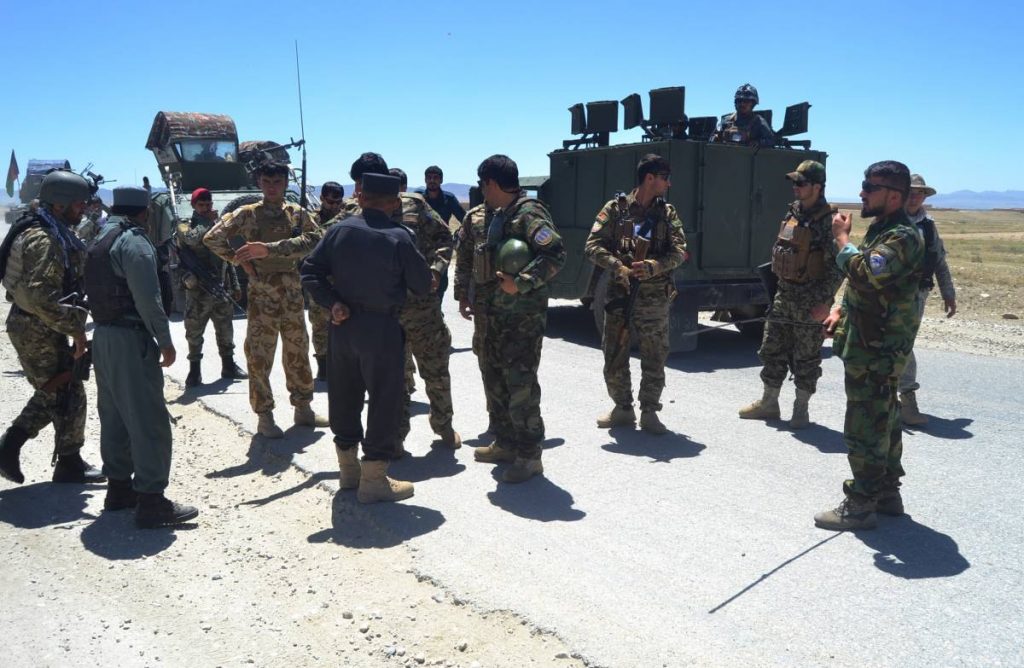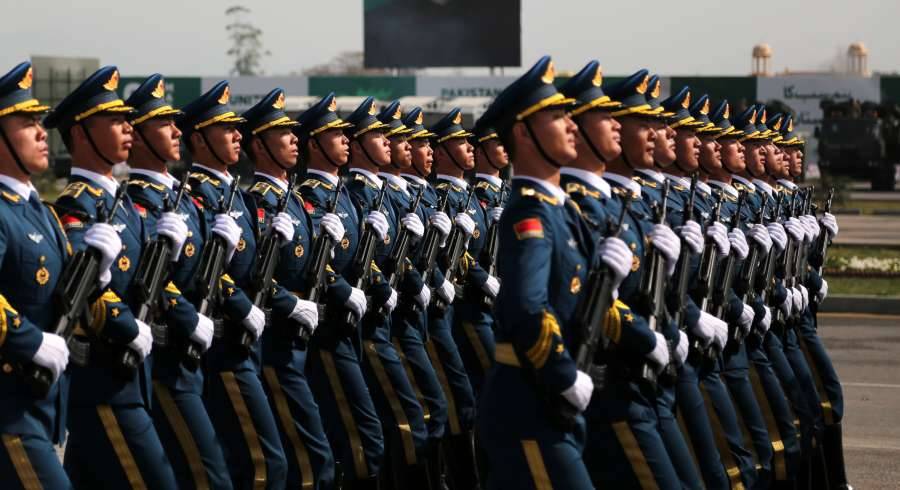The US troops play a crucial role in the future of Afghanistan. They stand between peace & Terror Caliphate of Taliban. The Afghan issue has put President Biden in a quandary: If he withdraws the troops by May 1, as stipulated in the Doha agreement between the Trump administration, Taliban and the Afghan government, he would domestically fall into the Republican political trap. If he does not withdraw, not only will be expose American troops to protracted danger for perhaps years but also he may have to take the blame for any decision of an angered Taliban to attack US forces …. Reports Dr Badusha Ahmed Khan
US President Joe Biden must be asking himself one question: Will the Taliban in Afghanistan revive its attempt to convert the Islamic Republic into an Emirate with an Islamic leader and instil terror as a tool of governance once the American forces leave the battle-scarred region? He is not getting any clear answer.
The capacity of the Taliban to inflict terror is evident even now, when anywhere between 2500 and 3500 US troops are in Afghanistan and the US air force carries out support sorties to complement the Afghan military’s attacks on Taliban bases.
The Taliban issue has put President Biden in a quandary: If he withdraws the troops by May 1, as stipulated in the Doha agreement between the Trump administration, Taliban and the Afghan government, he would domestically fall into the Republican political trap. If he does not withdraw, not only will be expose American troops to protracted danger for perhaps years but also he may have to take the blame for any decision of an angered Taliban to attack US forces – something it has not done so far.
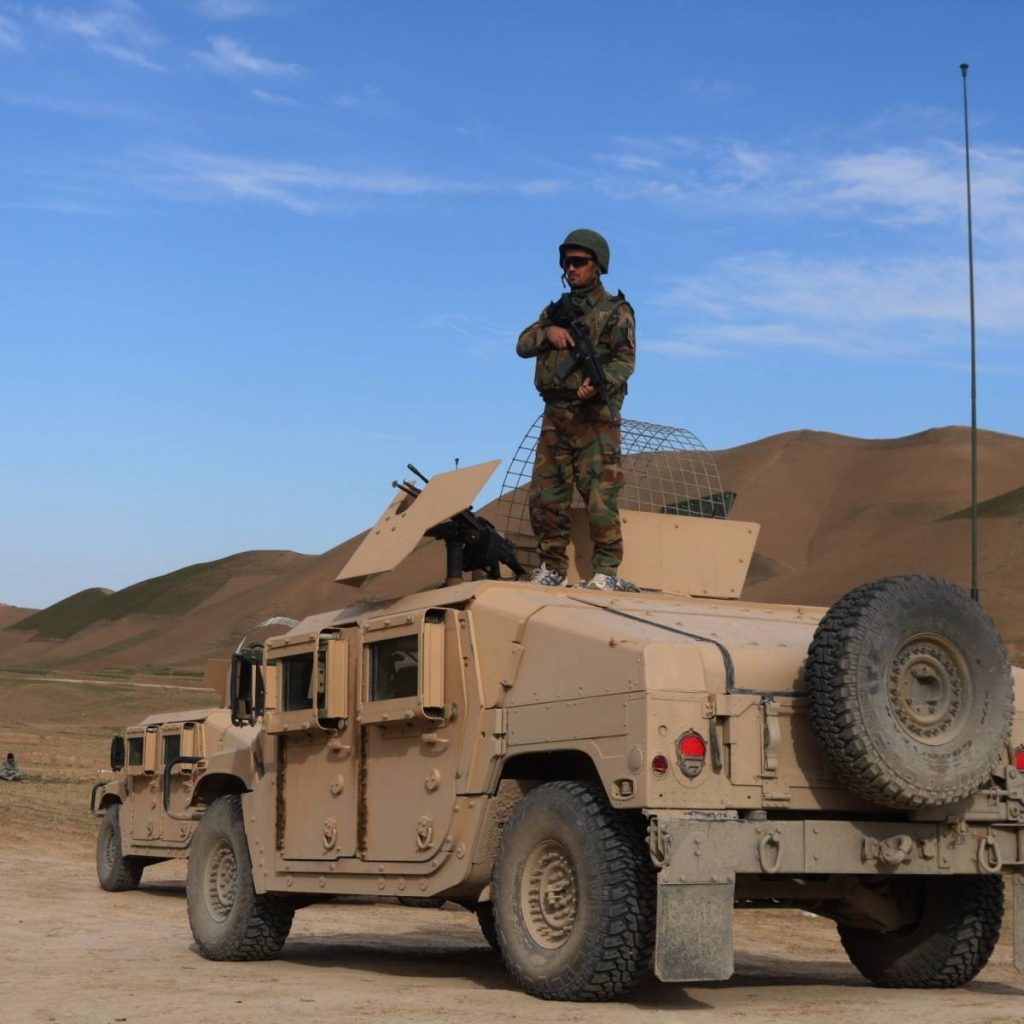
Biden’s White House press conference in March third week was marred by the American confusion over its Taliban policy. Biden was asked about the May 1 deadline for withdrawal of the US troops.
“If we leave, we’re going to do so in a safe and orderly way,” he said. But he quickly clarified: “It’s not my intention to stay there for a long time, the question is how and under what circumstance do we meet that agreement that was made by President Trump to leave…but we are not staying a long time.”
Also Read – Biden reassures Americans again
Does he envisage presence of American troops in the later part of 2021 and thereafter?
“I can’t picture that being the case.” But are the troops leaving by May 1? “We will leave. The question is when we leave.” So, the troops are ready to move by the deadline? “…just in terms of tactical reasons” there could be a delay, was his response.
While international defence policy experts write reams about the American presence or absence after May 1 in Afghanistan, President Biden is grappling with practical concerns than policy ones, those close to him confide.
His Secretary of Defence Lloyd Austin said in Kabul when asked if troop withdrawal is linked to end to Taliban-sponsored violence: “I won’t comment on that. But what I will say is that it’s obvious that the level of violence remains pretty high in the country.”
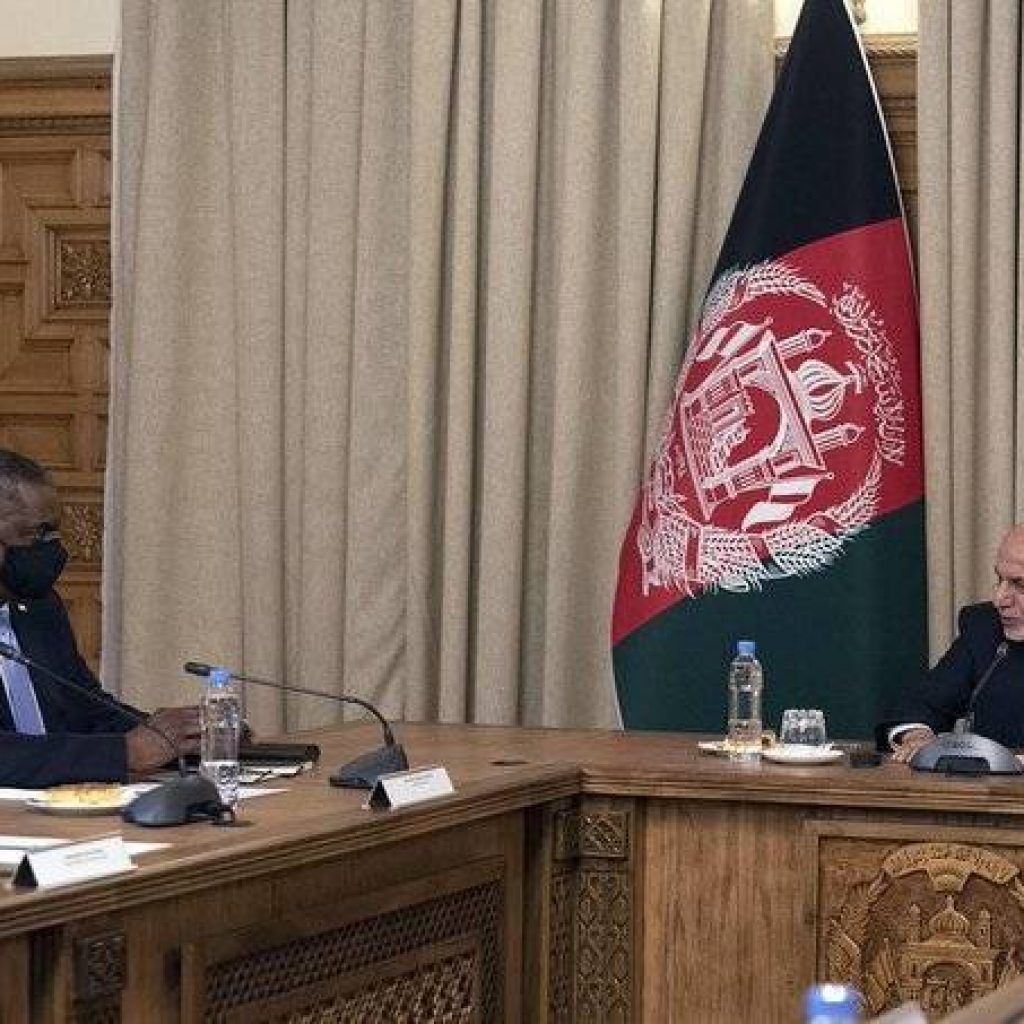
General Richard Clark, commander of U.S. Special Operations Command, in a recent Senate testimony said: “It is clear the Taliban have not upheld what they said they would do and reduce the violence. While on the positive side they have not attacked U.S. forces, it is clear that they took a deliberate approach and increased their violence since the peace accords were signed.”
Representative Adam Smith, chairman of the House Armed Services Committee said of the May 1 deadline: “Running for the exits pell-mell by May 1 is dangerous. It is dangerous to our troops [and] I don’t want to leave a bunch of, you know, high-grade military equipment behind for whoever grabs it either.”
All these personages are saying what President wants to hear as he reviews the withdrawal issue: Logistics and logistics alone could delay withdrawal of US troops.
What precisely are the brass tacks issues that Biden is grappling with? First of all, the Emirate conversion issue.
No doubt the US joined Russia, China and Pakistan in the second half of March to oppose the restoration of an Islamic Emirate under the Taliban, but Biden knows that is the core issue. He has proposed an international peace conference in Istanbul, Turkey in April, 2021 with the Taliban and the Afghan government. This would be his administration’s initiative, essentially to differentiate it with the attempts made by the Trump administration. The Afghan government has accepted the invite, but the Taliban is yet to respond.
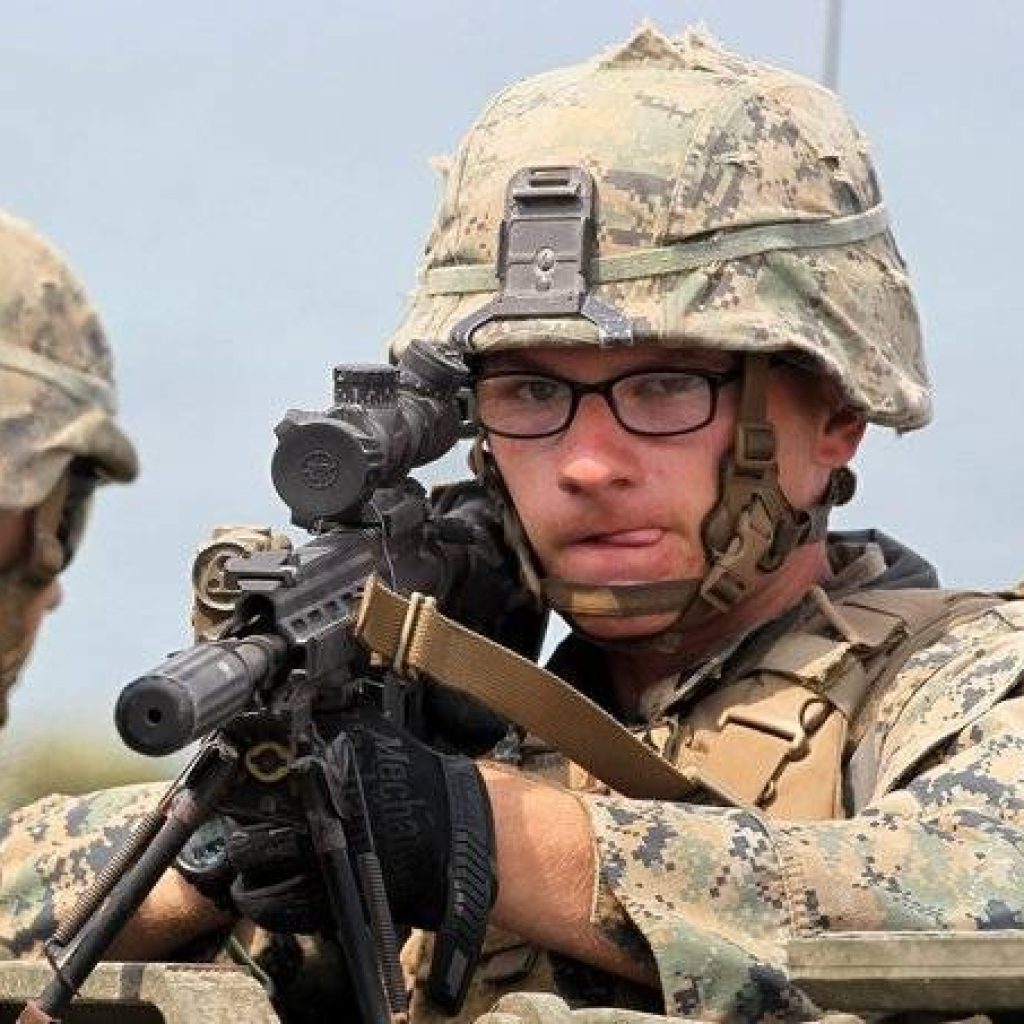
Biden’s idea seems to be to make his new administration control the Afghan peace process. In other words, get his stamp all over it. He wants to ensure that the Taliban and the Afghans form a joint government in Kabul. The Taliban is aware that it was not invited to the last such conference the US hosted in Bonn, Germany in 2001 to form an Afghan government led by Hamid Karzai after the Taliban was ousted following the 9/11 attacks. The same Taliban is key to the Istanbul conference today.
Biden’s experts are telling him the Taliban “is stronger now than at any point since 2001….with up to eighty-five thousand full-time fighters, it controls one-fifth of the country and continues to launch attacks”.
Also read:UN chief appoints personal envoy on Afghanistan
The Council on Foreign Relations (CFR) has already issued a caution: “Analysts warn that violence could escalate dramatically in 2021 and that the peace process could collapse, increasing the likelihood of an expanded civil war, casualties, and activities by terrorist groups.”
The CFR, in its March, 2021 edition points out that “the group (Taliban) has withstood counterinsurgency operations from the world’s most powerful security alliance, the NATO, and three US administrations in a war that has killed more than 6,000 US troops and contractors and over 1,100 NATO troops…. some 46,000 civilians have died, and an estimated 73,000 Afghan troops and police officers have been killed since 2007”.
The Taliban’s own losses are said in the tens of thousands, but “the group is stronger now than at any point in the last 19 years….it has between 55,000 and 85,000 full-time fighters”.
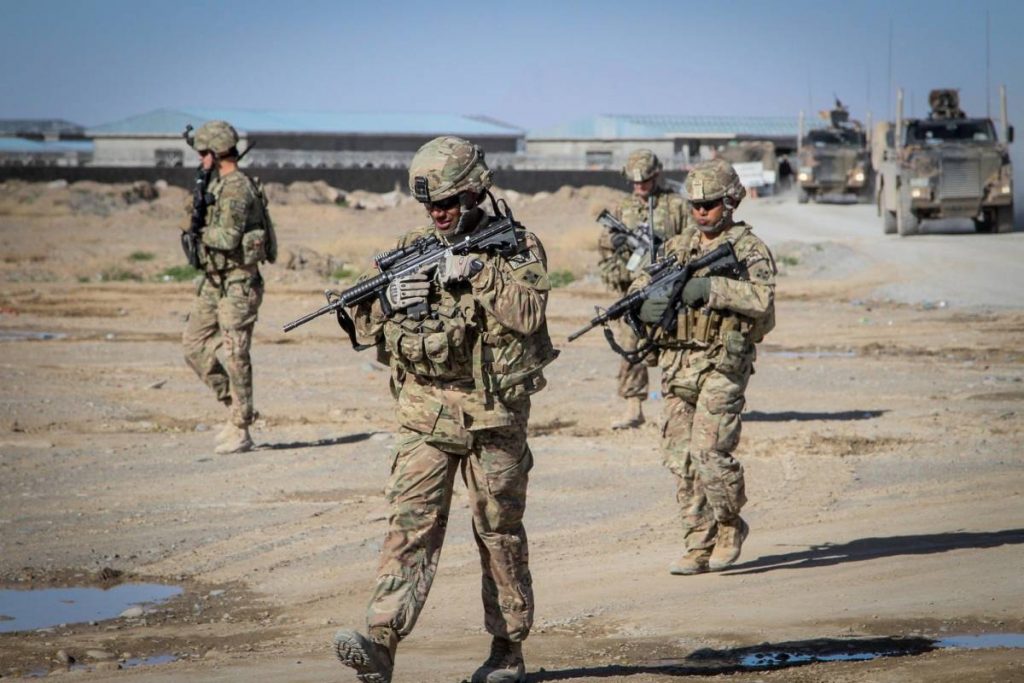
Referring to the terrorist group’s geographical influence, the CFR says: “In early 2021, the Taliban controlled an estimated 19 per cent of districts, while the government controlled 33 per cent, according to the Foundation for Defense of Democracies Long War Journal, a U.S.-based publication that has covered the U.S. fight against al-Qaeda and other militant groups since 2007.”
A UN mission, the UN Assistance Mission in Afghanistan (UNAMA) says Taliban violence has increased several times 2020 onwards and proves it by providing data that shows “8820 civilian deaths and injuries” occurred in 2020 alone. If anyone thinks the figure is high, it should be remembered that it is a 1,000 less than the 2019 figure.
The second headache for President Biden is the inability of the American troops to choke the financial resources of the Taliban. Opium poppy cultivation and narcotics are the Taliban’s primary source of revenue.
A UN report estimated “that it earned $400 million in 2018 from the illegal drug trade”. It gets additional revenue through taxes it levies “on commercial activities in its territories, such as farming and mining and other activities like “illicit mining, the extortion of local businesses, and donations from abroad”.
This, in spite of the fact that the Americans poured billions of dollars to stop the narcotics trade. It is estimated that the US spent $10 billion on anti-narcotics operations in the last decade or more. However, cultivation of opium poppy quadrupled in this period. What is worse, Afghanistan now has the dubious record of suppling “80 per cent of the world’s heroin”.
The Taliban have so effectively pulverised the Afghan military forces that reports from Kabul claim the government is finding it difficult to find new recruits for the army.
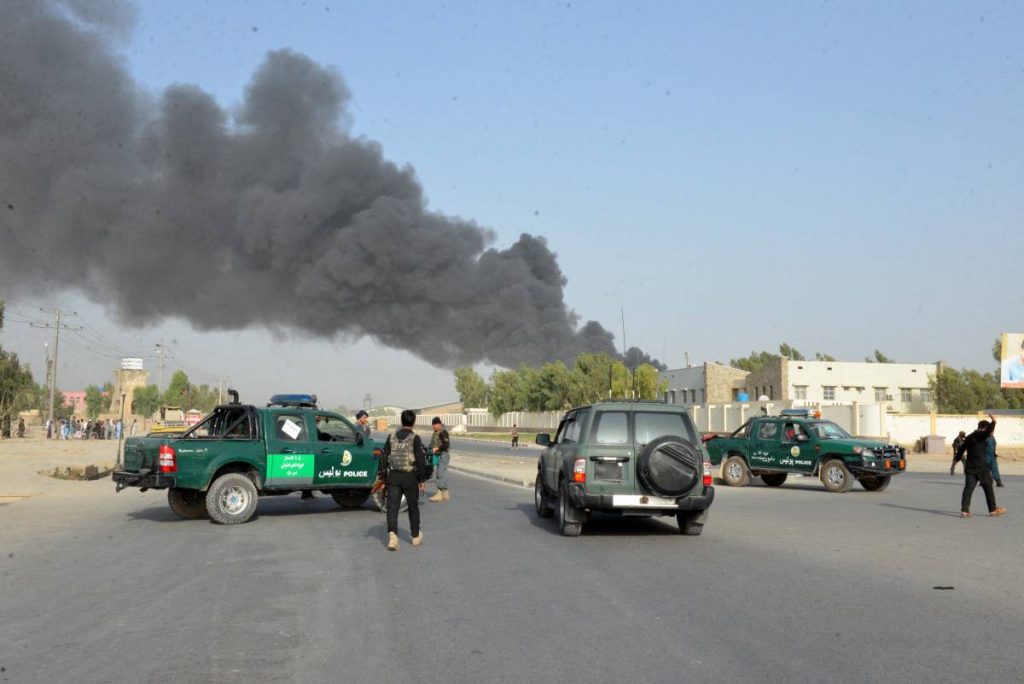
Since 2016, the Taliban have killed on an average 20-25 Afghan security forces every day. As the fatalities began to double two years later, the Afghans and the Americans jointly decided to keep the actual fatalities under wraps for fear of demoralising the Afghan forces. Afghanistan’s main army recruitment centre in Helmand gets not more than two or three applications a day. The government also began to face attrition in terms of desertions and failure to re-enlist – another fact it does not advertise.
President Biden has also to find out how the Afghans and the Taliban share power if things actually reach that stage of negotiations in Istanbul. There are other questions in his mind as well: “What will happen to Afghanistan’s democratic institutions and constitution? How women’s, LGBTQ+ individuals’, and religious minority groups’ rights will be protected?
Taliban representatives have said they would protect women’s rights under Sharia but have given few details on what doing so would look like in practice.”
Other questions include whether the Taliban forces will be “disarmed and reintegrated into society”, who will “lead the country’s army”.
The real question is whether for the Taliban the proposed peace has a narrow meaning: “Peace does not mean an end to the fighting, it means an end to the US occupation”, as a journalist put it. Once the Americans leave along with their troops, will the Taliban not only re-occupy the bases they were evicted from but also try to re-establish the Islamic emirate, handing over power to an orthodox cleric who abides by principles of terror than peace?
President Biden is not getting a clear answer.
Also read:Tough to meet May 1 Afghan troop exit deadline: Biden

